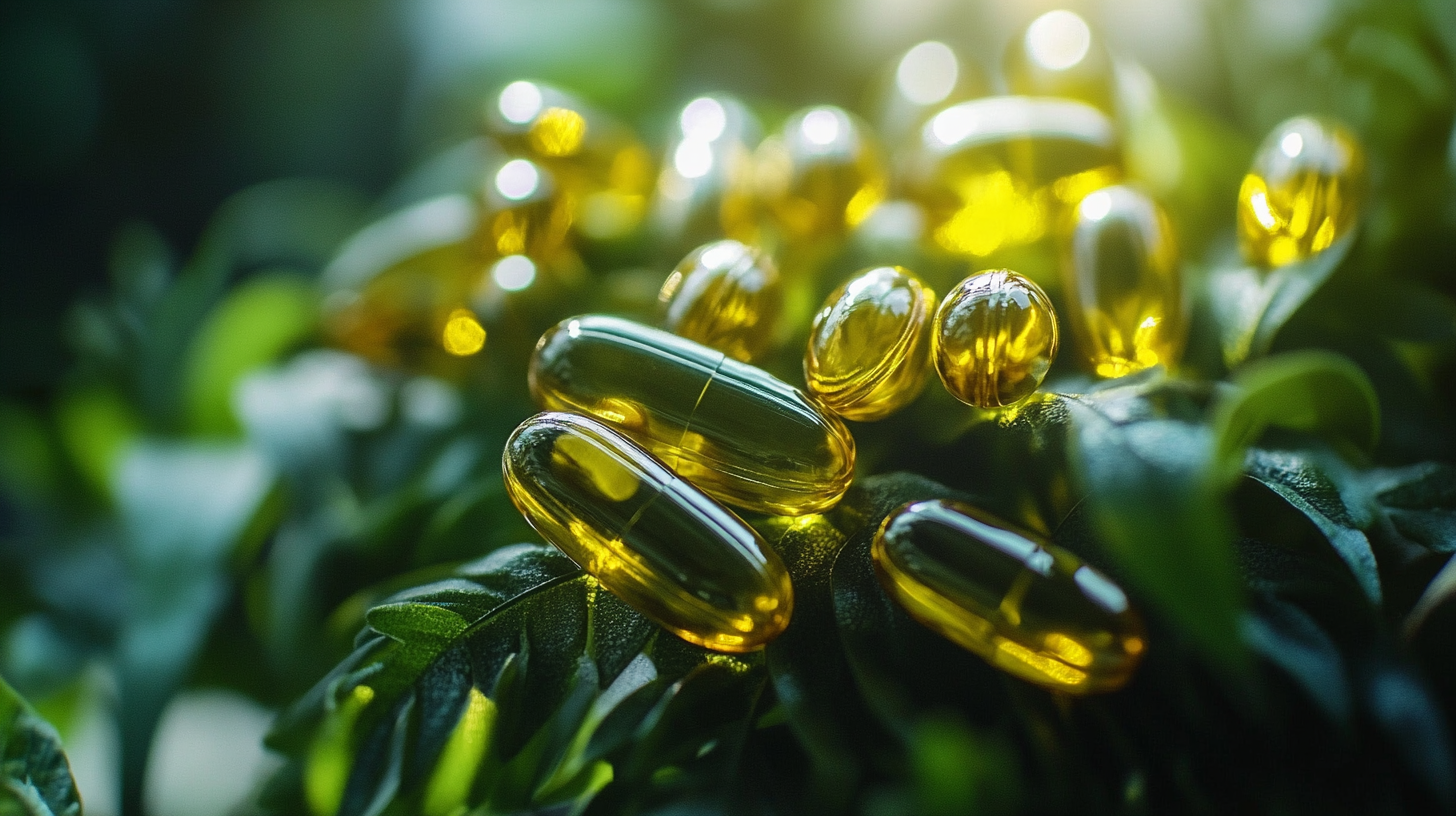50% Response rate
Herbal Capsules 2025 Innovations and Essential Approaches for Global Buyers
As the global supplement market continues to evolve, herbal capsules have emerged as a significant player, accounting for approximately 11% of the total dietary supplements market as of 2022. According to a recent report by Grand View Research, the global herbal supplement industry is projected to reach USD 148.69 billion by 2028, growing at a compound annual growth rate (CAGR) of 7.4%. This surge is driven by increasing consumer interest in natural remedies and the rising awareness of the health benefits associated with herbal products. In particular, herbal capsules offer convenience and precise dosing, making them a preferred choice for health-conscious consumers.
In 2025, the innovations surrounding herbal capsules are expected to redefine their applications and efficiency in health management. From advancements in extraction techniques to the integration of technology in product development, buyers globally are on the lookout for high-quality herbal capsules that meet stringent safety and efficacy standards. Furthermore, as sustainability becomes a focal point for consumers, the sourcing and production methods of these products will play a crucial role in purchasing decisions. This blog aims to explore the latest innovations and essential approaches that global buyers should consider to navigate the dynamic landscape of herbal capsules.

Emerging Trends in Herbal Capsule Formulations for 2025
The herbal supplement industry is experiencing a significant transformation, spearheaded by science-backed formulations and adaptogens that alleviate stress. Emerging trends for 2025 indicate that herbal capsules are becoming the go-to choice for consumers seeking natural health solutions. As the market burgeons from $14 billion in 2025 to $17 billion by 2028, it is clear that herbal capsules will play a pivotal role in this expansion. Notably, adaptogens like ashwagandha are gaining traction, with market forecasts showing considerable growth driven by rising consumer awareness and demand for holistic wellness. Innovations in formulation techniques are reshaping how herbal capsules are created and consumed. The integration of high-tech solutions and personalized health approaches is set to become prominent. This includes new methods of infusing herbs to enhance efficacy and improve bioavailability. As consumers increasingly seek to tailor their health regimens, the trend of personalized herbal supplements is expected to dominate the landscape. Events such as the HADSA Annual Conference 2025 are pivotal in discussing regulatory advancements and the future of nutraceuticals, emphasizing the importance of innovation in the herbal capsules sector. Additionally, the incorporation of trending ingredients, such as amla and liver health supplements, highlights the industry's adaptability to evolving consumer preferences. As the global food supplement ingredients market is projected to grow substantially, buyers can anticipate a wider variety of herbal capsule options tailored to specific health needs. The 2025 landscape promises not only growth in market size but also an exciting array of product innovations that align with the modern consumer's quest for wellness through nature.

Sustainability in Sourcing Herbal Ingredients for Global Markets
As the global market increasingly prioritizes sustainability, the sourcing of herbal ingredients for herbal capsules has taken center stage. The rise of eco-conscious consumers is driving a shift towards responsible sourcing practices across all sectors, including the rapidly expanding herbal medicine market, projected to reach a staggering USD 533.6 billion by 2033. This transformation is reflected in a heightened demand for transparency in ingredient sourcing, with buyers actively seeking suppliers who can demonstrate their commitment to sustainable practices.
In parallel, the clean beauty market continues to flourish, projected to grow from USD 8.25 billion in 2023 at a compound annual growth rate of 14.8% through 2030. This growth is fueled by consumers who are prioritizing products that not only enhance their beauty but also protect the environment. As we navigate through 2025, brands are focusing on integrating vegan and responsibly sourced ingredients into their offerings, aligning with customer values that emphasize health, wellness, and ethical consumption.
The concept of protecting and regenerating nature is gaining traction, urging companies to adopt a more aggressive stance towards sustainability. This involves not just sourcing high-quality ingredients, but doing so with a commitment to ecological preservation and restoration. As the herbal capsules market evolves, global buyers will increasingly favor suppliers who not only provide effective products but also contribute positively to the planet through sustainable practices and innovative approaches to sourcing.

Innovative Delivery Methods Enhancing Herbal Capsule Efficacy
The herbal supplement market is experiencing a transformative shift as innovative delivery methods are enhancing the efficacy of herbal capsules. As global buyers seek more effective solutions, advancements in technology are paving the way for a new era in herbal medicine. One of the key innovations is the incorporation of nanotechnology, which allows for the encapsulation of herbal extracts at a molecular level. This not only improves bioavailability but also ensures that the body can better absorb and utilize the active compounds found in herbs.
Another exciting development is the use of enteric-coated capsules, which protect herbal ingredients from stomach acid, ensuring they reach the intestine intact. This method significantly enhances the delivery and efficacy of sensitive herbal compounds that might otherwise degrade before they can exert their benefits. By focusing on precise targeting and controlled release, manufacturers can provide consumers with more reliable and potent supplements.
Furthermore, the integration of smart technology in delivery systems is revolutionizing how consumers interact with herbal capsules. Personalized dosage recommendations based on individual health profiles and real-time tracking of herbal absorption can optimize the effectiveness of herbal remedies. These innovations not only satisfy the growing demand from consumers for tailored health solutions but also position herbal capsules at the forefront of modern nutraceuticals, making them essential for global buyers looking to enhance their product offerings.

Navigating Regulatory Challenges in Herbal Capsule Production
Navigating the regulatory landscape in herbal capsule production is a critical endeavor for global buyers aiming to capitalize on the booming demand for herbal supplements. With the growing consumer inclination towards natural products, understanding the intricate regulations across different regions is imperative. Each country possesses distinct guidelines that govern the manufacturing, labeling, and marketing of herbal capsules. Buyers must closely examine these regulations to ensure compliance and avoid potential legal pitfalls.
In many regions, herbal supplements are regulated as dietary supplements or food products, necessitating stringent adherence to safety and quality standards. This often requires robust documentation of ingredient sourcing, manufacturing processes, and product testing. Buyers should prioritize partnerships with manufacturers who demonstrate transparency and a commitment to quality assurance. Additionally, it’s essential to stay updated on evolving regulations and emerging trends, such as sustainability practices and sourcing ethics, which can significantly influence consumer trust and product success.
Furthermore, navigating intellectual property laws is another layer of complexity for global buyers. With innovations continually surfacing in herbal formulations and delivery methods, protecting proprietary blends while adhering to patent laws is crucial. Establishing solid legal frameworks not only safeguards products but also enhances competitive advantage in a crowded market. Therefore, by taking proactive steps to understand and address these regulatory challenges, herbal capsule buyers can position themselves for sustainable growth and consumer loyalty in the years to come.
Consumer Preferences Shaping the Future of Herbal Supplements
As consumer preferences evolve, the herbal supplement industry is witnessing a significant transformation. Recent data from the Herbalife Nutrition 2022 Global Consumer Survey indicates that 68% of consumers are increasingly prioritizing natural ingredients over synthetic alternatives. This shift underscores a growing awareness of health and wellness, particularly post-pandemic, leading to greater demand for herbal capsules that promote holistic well-being.
Additionally, the 2023 Market Research Future report highlights that the global herbal supplements market is projected to reach $108 billion by 2025, driven largely by consumer preferences for personalized health solutions. Buyers are not only seeking supplements that offer traditional benefits but are also inclined towards products backed by scientific research. Brands are responding by innovating new herbal formulations and leveraging advanced extraction methods to enhance potency and bioavailability, making these products more appealing.
Moreover, as consumers become more educated about their choices, they express a preference for transparency in sourcing and manufacturing practices. According to a survey by Statista, over 75% of consumers favor brands that provide clear information about their ingredient origins. This demand for transparency is prompting companies to implement traceability measures, ensuring that each product not only meets quality standards but also aligns with consumers' desire for sustainability and ethical sourcing. This transformation in consumer preferences is shaping the future of herbal supplements, influencing everything from product development to marketing strategies.
